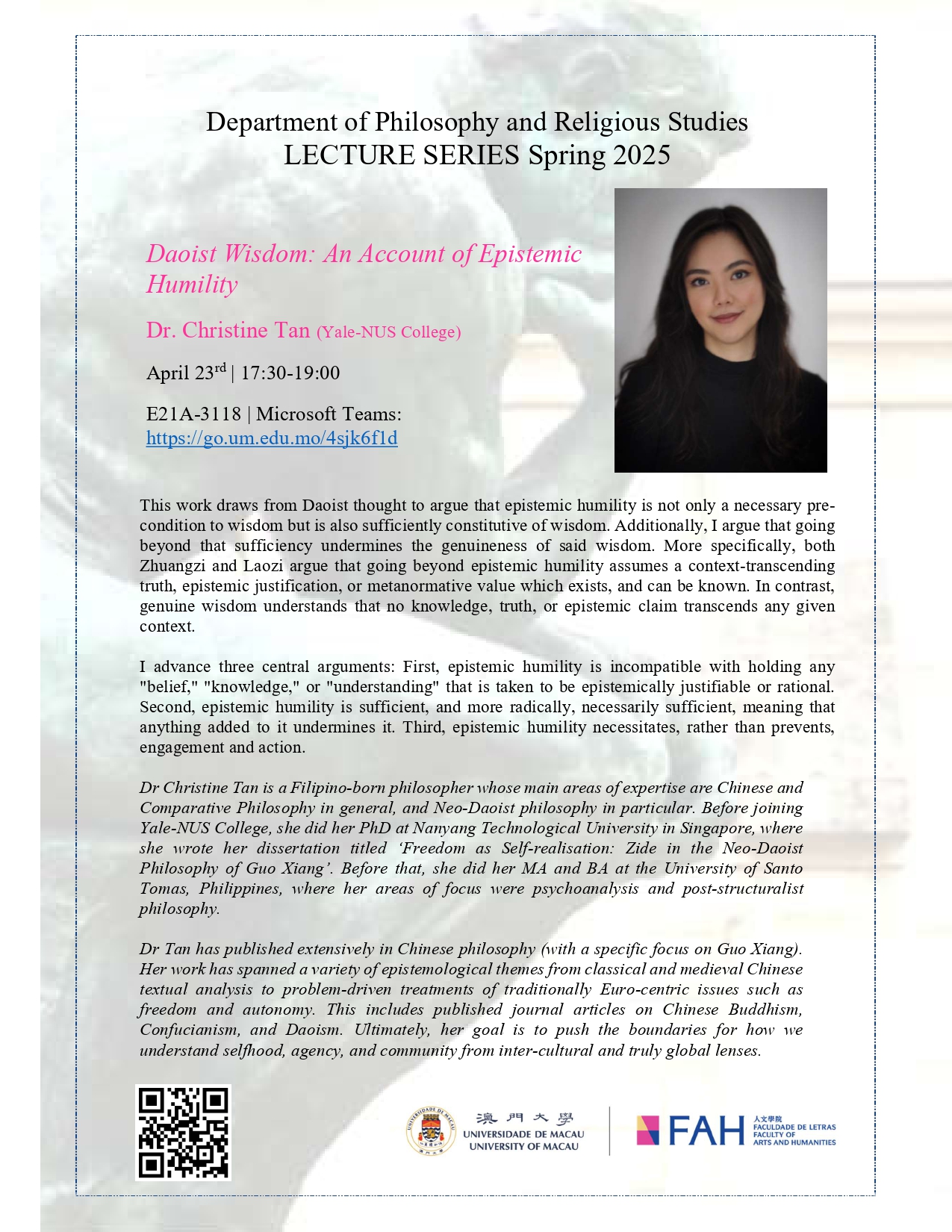

FAH/DPHIL Lecture Series – “Daoist Wisdom: An Account of Epistemic Humility” by Dr. Christine Tan, Yale-NUS College, Singapore
2025-04-23 @ 5:30 pm ~ 7:00 pm
Microsoft Teams: https://go.um.edu.mo/4sjk6f1d
Abstract
This work draws from Daoist thought to argue that epistemic humility is not only a necessary pre-condition to wisdom but is also sufficiently constitutive of wisdom. Additionally, I argue that going beyond that sufficiency undermines the genuineness of said wisdom. More specifically, both Zhuangzi and Laozi argue that going beyond epistemic humility assumes a context-transcending truth, epistemic justification, or metanormative value which exists, and can be known. In contrast, genuine wisdom understands that no knowledge, truth, or epistemic claim transcends any given context.
I advance three central arguments: First, epistemic humility is incompatible with holding any “belief,” “knowledge,” or “understanding” that is taken to be epistemically justifiable or rational. Second, epistemic humility is sufficient, and more radically, necessarily sufficient, meaning that anything added to it undermines it. Third, epistemic humility necessitates, rather than prevents, engagement and action.
Bio
Dr Christine Tan is a Filipino-born philosopher whose main areas of expertise are Chinese and Comparative Philosophy in general, and Neo-Daoist philosophy in particular. Before joining Yale-NUS College, she did her PhD at Nanyang Technological University in Singapore, where she wrote her dissertation titled ‘Freedom as Self-realisation: Zide in the Neo-Daoist Philosophy of Guo Xiang’. Before that, she did her MA and BA at the University of Santo Tomas, Philippines, where her areas of focus were psychoanalysis and post-structuralist philosophy.
Dr Tan has published extensively in Chinese philosophy (with a specific focus on Guo Xiang). Her work has spanned a variety of epistemological themes from classical and medieval Chinese textual analysis to problem-driven treatments of traditionally Euro-centric issues such as freedom and autonomy. This includes published journal articles on Chinese Buddhism, Confucianism, and Daoism. Ultimately, her goal is to push the boundaries for how we understand selfhood, agency, and community from inter-cultural and truly global lenses.

